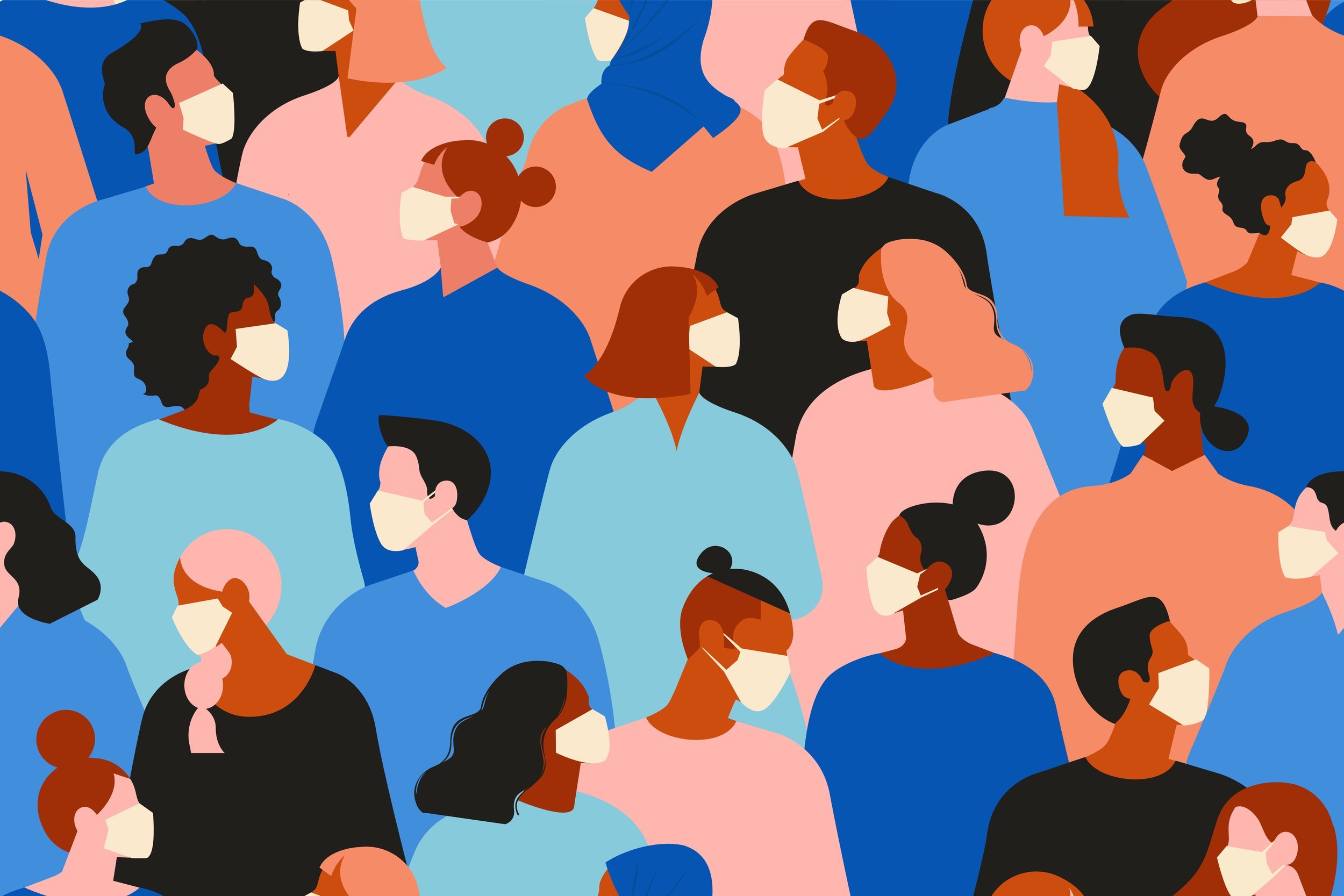From COVID-19 to an Eating Disorder
Five days into my “mild case” of COVID in November 2020, I texted my best friend that I had lost my taste and smell. She texted back that someone she knew lost a lot of weight after losing hers for six months. I replied, “If I have no appetite for six months too, maybe then I’ll be skinny.”
Today, over two and a half years later, that text still haunts me. As always, hindsight is 20/20, but if I would have been able to see or know how long this hell would last, would I have gone back for seconds that day? Would I have savored the sweet aroma of cookies filling the house and the beautiful taste of the chocolate more? Would I have given a big F*** YOU to diet culture, or continued trying to create a version of my body that society would accept as healthy and well?
The hard truth I’ve come to realize is that the Nichole I was the day I sent that text was doing the best she could with the knowledge she had in a world that promotes disordered eating and thinness by any means necessary.
At the time, losing taste and smell felt like a reprieve from the bondage I thought food held over me. It literally felt like the answer to all of my problems. I’d long felt uncomfortable in my body, but my chronic pain didn’t allow me to move like I wanted to. Doctors repeatedly told me that managing my diet differently by trying intermittent fasting and changing up the foods I was eating along with exercise would make me feel better. So then entered the thought: if I can’t taste or smell, then why not just eat “healthy”?
This was the beginning of my descent from disordered eating to an eating disorder. I couldn’t say the exact moment when the transition occurred, but taste and smell distortion was definitely the final catalyst.
It didn’t happen all at once as I imagine most eating disorders don’t develop overnight. Instead, it happened little by little. I began eliminating various foods and skipping meals, all in the name of “health.” After all, my doctor had been the one to suggest it, so I thought it couldn’t be wrong.
But then a shift occurred: those same doctors who initially suggested these changes and cheered on the weight loss told me that I needed to stop. I asked for resources and help but they simply said “just eat more.” But the habits and behaviors had already been formed – my connection to food and love for cooking was long gone, and my taste and smell were still nowhere to be found.
So, I sought out an evaluation because I didn’t know what else to do. In July of 2022, I was diagnosed with anorexia through Project HEAL’s Clinical Assessment Program. But surprise, even with a diagnosis, I still experienced (and continue to experience) barriers to accessing validating and accommodating care. I felt like no one in the eating disorder world knew how to treat me either because I was too medically complex. I was told I needed more support, but treatment programs couldn’t allow my medical accommodations in their programming; instead, they felt it’d be better for me to focus on my medical needs and discuss programming when my medical conditions were more stable.
As someone with chronic conditions that may never become “stable,” I felt left behind without support and guidance once again.
Last I checked, my name is still Nichole. But each version of me has now been given such opposing suggestions, it seems no one knows how to help. Nichole in a larger body’s prescription: lose weight, eat less, move more and then you’ll feel better. Nichole in a smaller body’s prescription: gain weight, eat more, move less and then you’ll feel better. But neither of these suggestions address my chronic pain or loss of taste, never mind being informed of safe and effective eating disorder treatment.
It feels like all I’ve been taught is that no matter which version of myself I present to the world, I’m never good enough. It is never okay to just be me in my own skin and show up fully as myself, all parts aligned.
I’m still not sure what the solution for me looks like exactly, but I do know two things:
Weight loss is not the solution. Neither is “just eating more.”
Restricting my movement is not the solution. Neither is forcing more of it.
There has to be a middle ground somewhere that I have yet to discover; a space where joy and movement coexist and food isn’t the enemy. A place where my healing path isn’t decided for me by the very system that abandoned me, but instead is created by me with the support of the community I build. And while I’m building, my goal is simply to apply grace, both to my past self and my current self.
To the Nichole I was in November 2020 — I forgive you and I love you.
To the Nichole I am today — we’ll get there, keep building.


